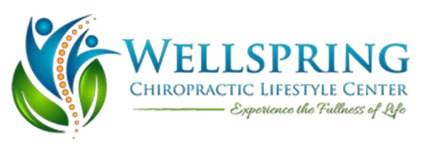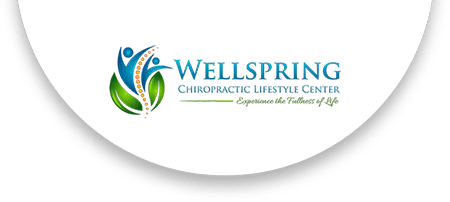COVID Has Gifted Us A Reset in Shelburne
COVID Has gifted us a reset in Shelburne
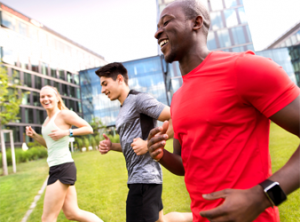 As an essential service I have a unique perspective of the impact of the dramatic change in our way of life in just a few short weeks. Everyone I have checked has shown higher levels of stress but there seem to be 2 themes emerging that we can learn from.
As an essential service I have a unique perspective of the impact of the dramatic change in our way of life in just a few short weeks. Everyone I have checked has shown higher levels of stress but there seem to be 2 themes emerging that we can learn from.
Some folks have been overloaded with the disruption, fear and uncertainty and it is clearly impacting their health. They have had setbacks and exacerbations, lost ground in their progress, especially if they interrupted their plan of care.
If you are struggling or worried about experiencing a setback, call us right away. We can clarify with you whether it is safe and appropriate for you to come into the office or at least set up a virtual visit with you. Essential care includes: “Supportive care which should be provided when if not rendered, could lead to a deterioration of a patient's health status and cause undue harm.”
Others are holding their own, adapting more easily and appreciating the opportunity to slow down and explore new rhythms as they navigate working from home, schooling their kids and watching how their time that used to be filled with outside activities is now somehow still being used up.
COVID has gifted us a reset in Shelburne.
Let’s not forget, we were already having a chronic health crisis in our country before CoVid19 appeared on the scene as an acute concern. None of the other health concerns went away just because Corona stole the show. No doubt the amount of change that has occurred in just a few weeks to our daily routines has been monumental and at this point I would like to focus on the opportunity that lies in front of us.
If you ever thought that changing a bad habit was difficult, you now have a new reference point of how much can change in a short period of time. The question is whether you have used the imposed disruption as a way to take stock and develop healthier choices or whether the compounded stresses have pushed you to worse habits, trying to cling to some semblance of normal.
For myself and my own family as well as wanting to support all of you, I have recently been reading ALOT about every aspect of our current situation from best practices for sanitation, to the real numbers of how the pandemic is evolving worldwide, to the economic impact both globally and locally, to various treatment theories for those hit hardest by this, not to mention how to navigate social distancing both practically and emotionally.
Doing my best to avoid the fear-mongering of the traditional media, my way of staying informed comes from other sources. One article inspired me greatly and I want to share my own thoughts with you but also recommend you take in the entire article. It comes from
The Coronation by Charles Eisenstein
With the extraordinary measures being taken to keep everyone safe, social distancing is being regarded as essential to combat the virus and protect the vulnerable, but I want to point out that it comes with a cost, not only to our economy but perhaps to our health.
As Eisenstein observes: “The measures being instituted to control COVID-19, likewise, may end up causing more suffering and death than they prevent… from isolation-induced depression, for instance, or the despair caused by unemployment, or the lowered immunity and deterioration in health that chronic fear can cause. Loneliness and lack of social contact has been shown to increase inflammation, depression, and dementia. According to Lissa Rankin, M.D., air pollution increases the risk of dying by 6%, obesity by 23%, alcohol abuse by 37% and loneliness by 45%."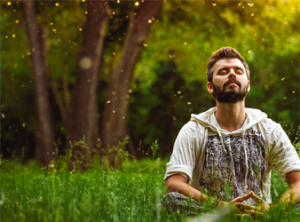
As reports come in of the improvements in our natural environment with the decreased human impact, like the dolphins in Venice and the blue skies in Wuhan, we are not hearing about the impact on our internal environment from the hyper-hygiene and lack of human interaction at the skin level. In my next post I will cover the deterioration in immunity caused by excessive hygiene and distancing, but right now I want to expand on the impact of social distancing to both our mental-emotional health as well as our physical health.
A study was done showing how psychological stress increases susceptibility to the common cold.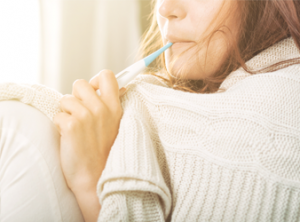
In this study 394 healthy subjects volunteered to have 1 of 5 different viruses "dropped" into their noses. One of the viruses that were being tested was a Coronavirus (not the current one but a Coronavirus none the less).
Before the drops, each of the subjects was assessed for psychological stress. I found 3 things fascinating from this paper
- Not everyone got sick. Yep...even with the virus being put directly into their nose!
- The more stress you had in your life the more likely you were to get sick (no surprise).
- Psychological stress was a better predictor of sickness than any other lifestyle factor, including smoking, alcohol consumption, exercise, diet and quality of sleep.
GreenMedInfo.com has this article 13 Studies Reveal How Social Distancing (i.e. Social Isolation) Can Increase Mortality which mentions this one showing social isolation increases stress and makes one more susceptible to the common cold.
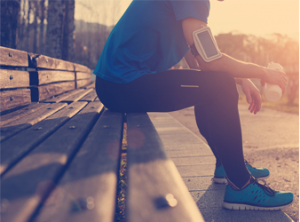
"A sad soul can kill you quicker than a germ"
- John Steinbeck
Another study showing unemployment increases deaths.
Even our physical bodies were meant to have human interaction and touch to thrive. Perhaps you have heard about the failure to thrive in orphans who were not touched enough.
I am contemplating the 2 trajectories that are appearing: if these current measures become the new normal and we normalize martial law, ongoing isolation, economic decline it isn’t looking so good for our society or our health. But what if the experience leaves us treasuring that which we had taken for granted and we emerge asking not how do we protect the immune-compromised susceptible to CoVid but how do we take care of vulnerable people in general and how do we improve everyone’s health?
It is fascinating that history demonstrates that when doctors go on strike, the death rates have decreased. Will we see the same for this period of social isolation when all were told to stay home instead of receiving routine medical care? Or will the emotional stress of community isolation bear a greater burden, though this may occur after a lag time?
As far as what we are learning from the actual data, Dr. Anthony Fauci is the Director of the National Institute of Allergy and Infectious Diseases and recently wrote this in a NEJM editorial:
“This suggests that the overall clinical consequences of COVID-19 may ultimately be more akin to those of a severe seasonal influenza (which has a case fatality rate of approximately 0.1%) or a pandemic influenza (similar to those in 1957 and 1968) rather than a disease similar to SARS or MERS, which have had case fatality rates of 9 to 10% and 36%, respectively.2”
Looking more closely at the data, most deaths appear to actually have been from other causes with COVID-19 present as an innocent bystander. Take the numbers from Italy as an example.
“The way in which we code deaths in our country is very generous in the sense that all the people who die in hospitals with the coronavirus are deemed to be dying of the coronavirus.”
“On re-evaluation by the National Institute of Health, only 12 percent of death certificates have shown a direct causality from coronavirus, while 88 percent of patients who have died have at least one pre-morbidity - many had two or three,” he says.
Also, the way the CDC is instructing hospitals to count COVID-19 deaths includes those that are not confirmed but only suspected or assumed. This means the actual number of COVID-19 deaths is much lower.
As Eisenstein ponders: “Should we blame the virus then (which killed few otherwise healthy people), or shall we blame underlying poor health? ... Millions of people in the modern world are in a precarious state of health, just waiting for something that would normally be trivial to send them over the edge. Of course, in the short term we want to save their lives; the danger is that we … never engage the ground conditions that make people so vulnerable.”
“Perhaps we can take this opportunity to reevaluate prevailing theories of illness, health, and the body. Yes, let’s protect the sickened fish as best we can right now, but maybe next time we won’t have to isolate and drug so many fish, if we can clean the tank.”
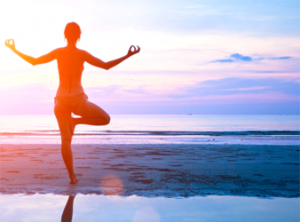 “We can normalize heightened levels of separation and control, believe that they are necessary to keep us safe, and accept a world in which we are afraid to be near each other. Or we can take advantage of this pause, this break in normal, to turn onto a path of reunion, of holism, of the restoring of lost connections, of the repair of community and the rejoining of the web of life.”
“We can normalize heightened levels of separation and control, believe that they are necessary to keep us safe, and accept a world in which we are afraid to be near each other. Or we can take advantage of this pause, this break in normal, to turn onto a path of reunion, of holism, of the restoring of lost connections, of the repair of community and the rejoining of the web of life.”
“Do we double down on protecting the separate self, or do we accept the invitation into a world where all of us are in this together?” Do we hoard toilet paper or do we share what we have with those that have a need? “Are we to be survivalists or helpers?”
We all get to choose how we will as individuals respond which right now may mean focusing on what you can do close to home.
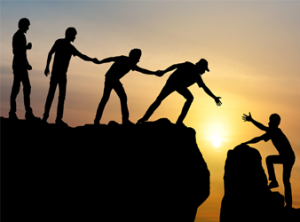
Here are a few ideas.
- Keep a vision of what you want to create for your reset. Write it down.
- Help a neighbor. Reach out to family and friends.
- Write letters to your future selves and ask someone to send it to you a year from now via snail mail, or place a digital copy into your calendar to read next year at this time.
- If you have extra time, instead of Netflix bingeing, think about something you would like to explore in-depth, add to your resume, explore a new field, or learn a new language.
- Share lots of hugs and cuddles with those who are in your pod of isolation.
OFFICE HOURS
Monday
10:30am - 7:30pm
Tuesday
6:30am - 2:00pm
Wednesday
10:30am - 7:30pm
Thursday
6:30am - 7:30pm
Friday
Closed
Saturday & Sunday
Closed
Wellspring Chiropractic Lifestyle Center
4076 Shelburne Road #5
Shelburne, VT 05482
(802) 985-9850
